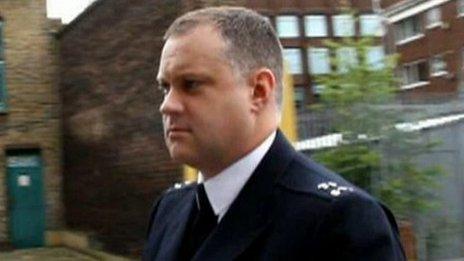Police watchdog admits investigations must 'speed up'
- Published
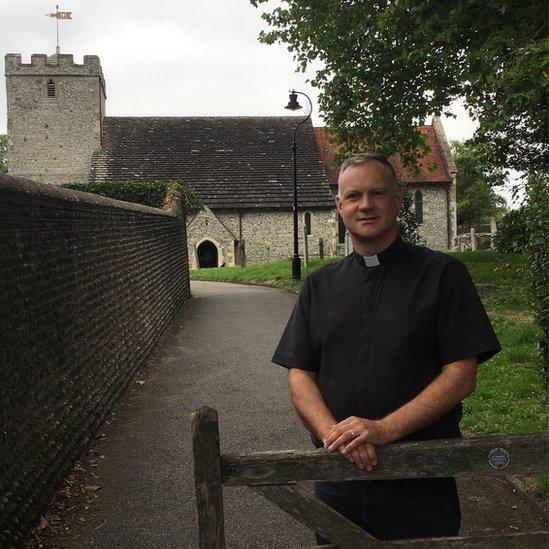
PC Andrew Birks has been paid a full salary since being suspended by the Met in 2014 - despite retraining to work as a priest

The police watchdog has admitted its investigations take too long - with officers facing misconduct probes suspended on full pay for years.
Data shows almost half of the UK's suspended officers have been off-duty for at least a year.
One, who has retrained as a priest, told the BBC he has spent five years being paid "unnecessarily" for a job he does not want to do.
The Independent Office for Police Conduct (IOPC) said it must do better.
From the 31 forces that provided information to the BBC through a Freedom of Information request, 71 of the 153 officers (46%) who were fully suspended from duty in October 2018 had been suspended since at least November 2017.
"We recognise we need to do better with the timeliness of our investigations and a number of changes are already under way to speed up our processes," an IOPC spokesman said.
"We are now completing nearly half of our investigations within six months and nearly 80% within a year."
The IOPC admitted there were some "long-running cases" it was "determined to conclude".
"They are high-profile, complex and involve other organisations, including coroner's courts, the Crown Prosecution Service and the relevant police force, which can make our investigations appear to take much longer than they actually do," the spokesperson added.
'Shameful'
Andrew Birks tried to leave the Metropolitan Police in 2014 when he decided to retrain as a priest.
But the Met blocked his exit by suspending him after pressure from the IOPC.
This ensured Mr Birks would face misconduct proceedings in relation to the death of a man in custody.
Sean Rigg, 40, died from a cardiac arrest after being restrained by officers at Brixton police station while Mr Birks was on duty in 2008.
Following an inquest in 2012, and investigations by the Crown Prosecution Service (CPS) and the IOPC, five officers including Mr Birks will face gross misconduct hearings in January.
Mr Birks has been paid an annual salary of about £35,000 during his suspension - a total of more than £150,000.
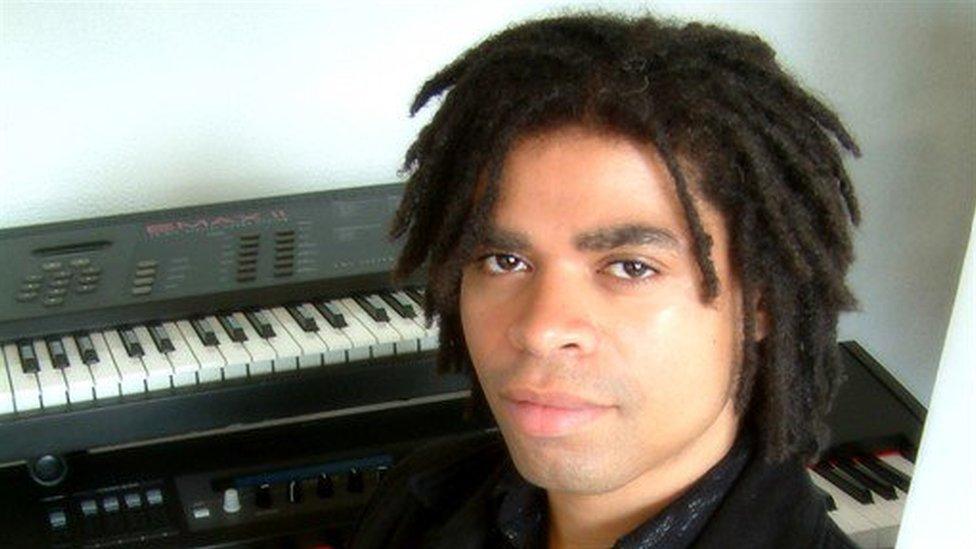
Sean Rigg, a musician, died after being held in the prone position by officers for eight minutes
"They're basically paying someone who really doesn't want to be there in the first place," he said.
"There's just inexcusable and actually quite shameful delays by the IOPC."
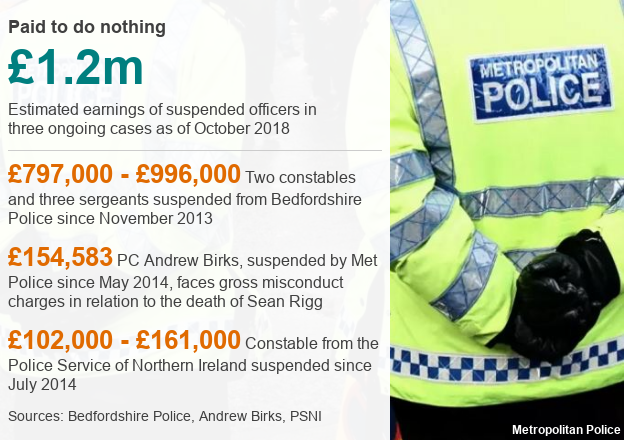
Mr Birks was ordained and has been working for free as a priest in Portslade, Sussex, because he cannot receive payment until he stops being employed by the Met.
Although he denies any wrongdoing in relation to Mr Rigg's death, he said he thought about the case "every single day" and did not sleep well because of it.
"I've got no problems being held to account for what I did, and investigated for what happened... But I don't expect it to take years," he said.
"We're not above the law... But we're not beneath it either."
'Heavy burden'
Regional Director for the IOPC, Sarah Green, said delays to Mr Rigg's case were a source of "regret" for her.
She added: "Our first investigation was inadequate and we have publicly and privately apologised to the Rigg family for this."
Mr Birks said he felt "let down" that the IOPC had not also apologised to officers.
"There's an apology to the family, there's not to the officers - and yet we're the ones being accused of effectively allowing this man to die, which is a heavy burden to bear for 10-odd years," he said.
"It [delays] lets down the families, it lets down police officers, but it just has identified how broken the [IOPC] actually is. It is not fit for purpose."
The investigation into Mr Rigg's death is one of many delayed IOPC cases.
Officers from Bedfordshire Police were sacked in October this year over a man who was left paralysed and brain damaged in 2013.
An Avon and Somerset officer was cleared of gross misconduct at a hearing seven years after a man died in custody in 2010.
Deborah Coles, from charity Inquest, said: "The current system of accountability for police officers is not fit for purpose and falls short of families' needs and expectations."
- Published19 November 2018
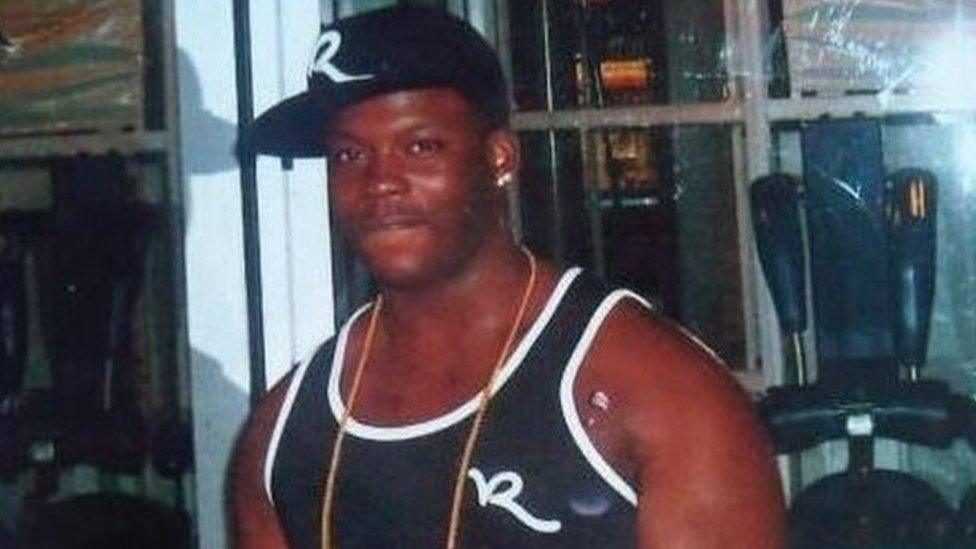
- Published22 October 2018
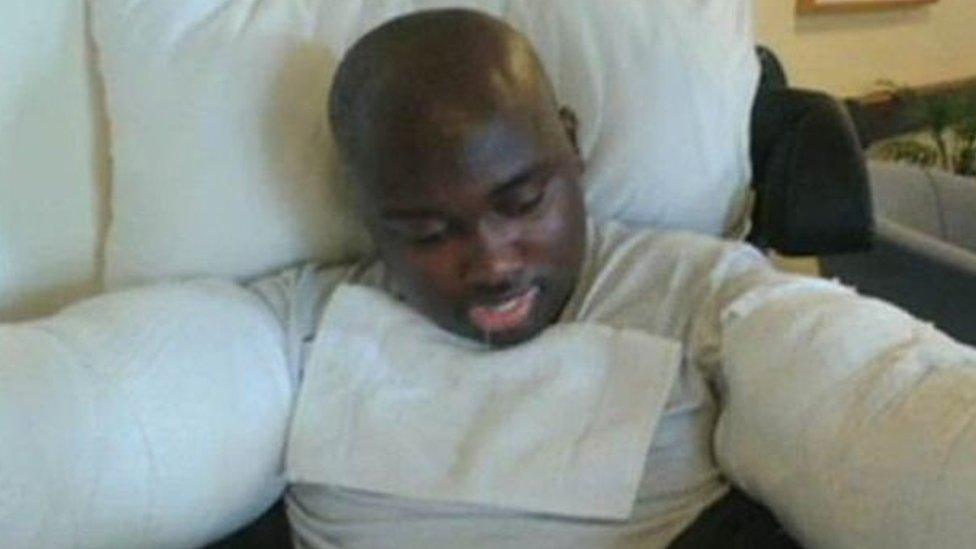
- Published13 September 2018
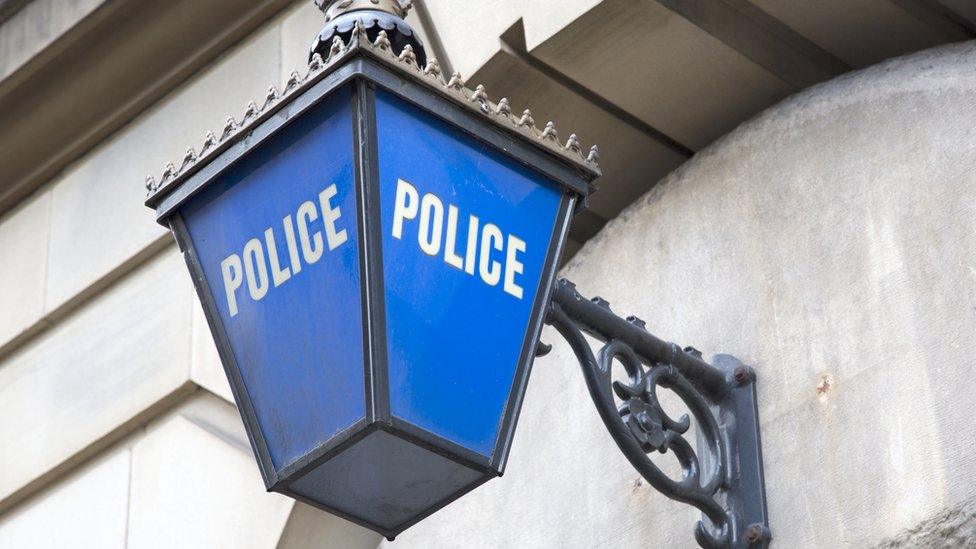
- Published6 September 2017
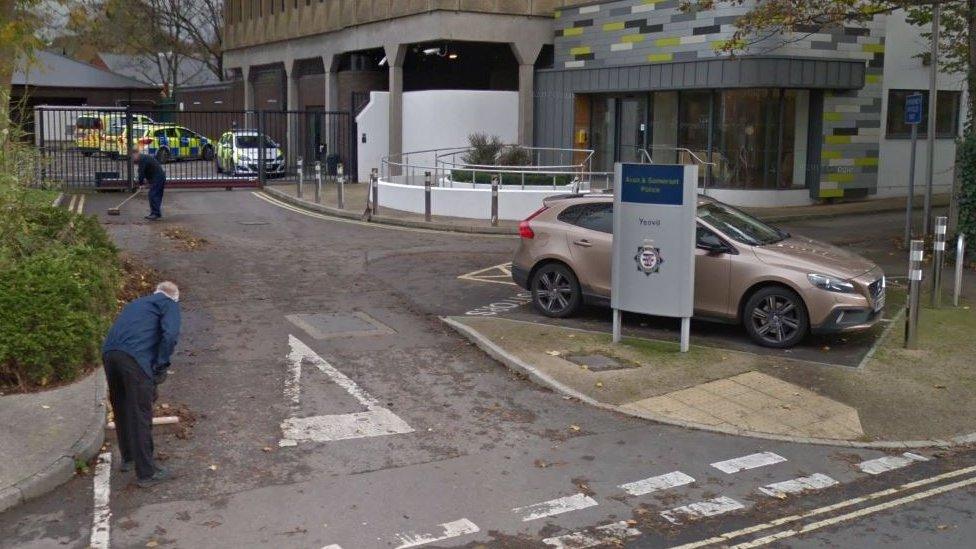
- Published25 September 2014
